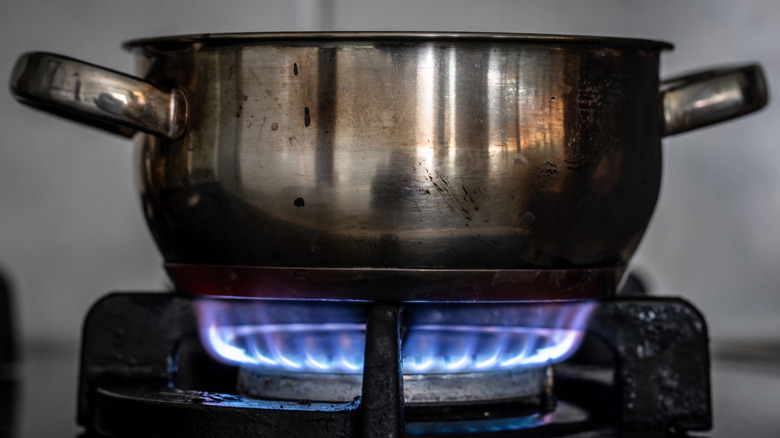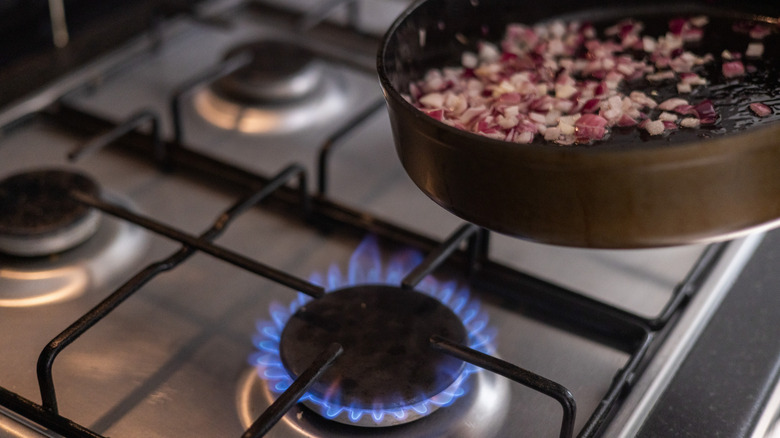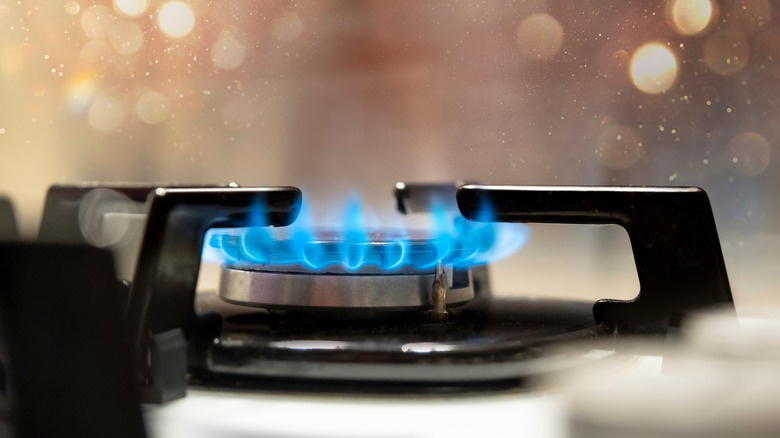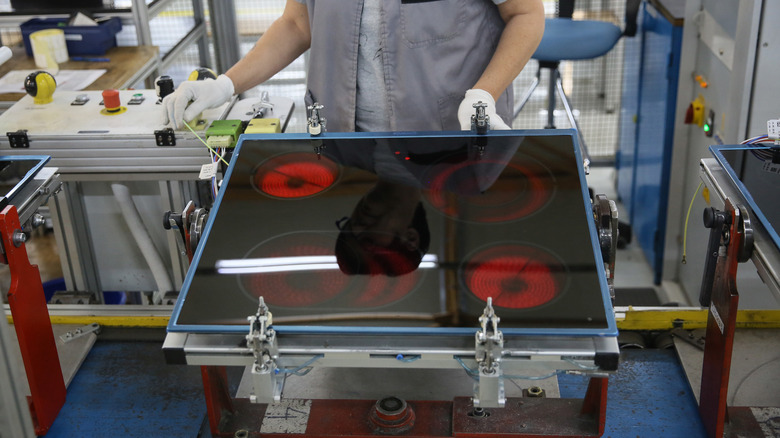Stop Believing The Myth That Gas Stoves Make Food Taste Better
There are few areas in life where people get as up in arms over minutiae as when it comes to their home kitchen. It could be a fight over whether big spoons or small spoons are better, which type of salt is superior, or whether you should use olive oil or butter. But one kitchen debate that persists is whether or not we should be using gas stoves.
We've been using gas stoves since the early 1800s when they replaced wood-burning and coal-burning stoves and came to dominate the market. To this day, many people stand by gas stoves despite mounting evidence that they pose a major health threat to home cooks. Gas stove proponents argue that it makes food taste better, but this is a highly misleading idea. It is true that many people prefer gas stoves to their electric counterparts because they find them easier to use, and you can adjust the temperature of a gas flame faster than you can adjust the temperature of an electric burner, so your food may turn out better on a gas stove if you're used to having that level of agility. But the cons far outweigh the pros when it comes to cooking with gas stoves.
Gas stoves don't make food taste better
While many gas stove enthusiasts believe that cooking with a gas stove improves the flavor of food, there's actually no discernible taste difference between a meal cooked on a natural gas range and one cooked on an electric range. In most cases, the gas flame never actively touches the food, so it doesn't affect the final flavor. However, there are specific things that can't be replicated on an electric range; for instance, you can't char peppers or toast tortillas over an open flame as you can with gas. Placing a corn tortilla flat on top of an electric burner won't achieve the same taste and texture, although there are very few cooking scenarios where this specific application would be required.
Using a gas stove, however, does introduce the risk of dangerous chemicals polluting your home, including carbon monoxide, formaldehyde, and hydrogen cyanide. The American Public Health Association has labeled gas stoves as hazardous to children, older adults, and people with underlying health conditions due to their ability to release high levels of nitrogen dioxide, which can cause respiratory illnesses like asthma. Additionally, having an open flame on your stovetop increases the likelihood of fires in your home. Because of these concerns, electric stoves have become a popular alternative. According to a 2020 report from the U.S. Energy Information Administration, only 38% of U.S. households use gas stoves.
The enduring popularity of cooking with gas
At the beginning of 2023, gas stoves even became part of an unexpected new wave in the culture wars, with conservative politicians and influencers riling up their fan bases in outrage against potential new anti-gas stove regulations. Republican Congressman Jim Jordan famously tweeted about the incident: "God. Guns. Gas Stoves."
If you're wondering why such a strong pro-gas stove preference still exists, it's not simply because people prefer it. In recent years, the gas industry has paid influencers to promote gas stoves like they would any other product ... Only, this paid model isn't always as transparent as other ads and could come off simply as a popular food influencer's personal preference. The American Gas Association and American Public Gas Association have both targeted Instagram communities, encouraging popular online chefs and home cook influencers to push the narrative that cooking with gas improves the flavor of your food (via Mother Jones). Which, again, is false — the only true benefit of gas stoves is their ability to heat up and cool down faster.
The stove you should use instead
In the midst of the gas versus electric stove debate, many professional chefs have come forward to remind us that there is another option – one that is generally accepted to be an improvement on both: Induction stoves. These stoves, which work using magnetic properties to heat your food, are far more precise than both gas and electric stoves, and far safer than gas stoves. They are also faster to use and easier to clean than gas stoves, and more sustainable in the long term. Still, induction stoves aren't cheap, but if you're really looking to invest in your kitchen, it's something to consider.
Of course, you could always just accept the electric stove your new super graciously installed. While there's always a learning curve with new appliances, cooking is adaptable, and your food will taste just as good once you adjust. Though some Americans, New Yorkers in particular, might not have much of a choice — By 2029, new legislation has mandated all electric heating and cooking in residential buildings statewide.




